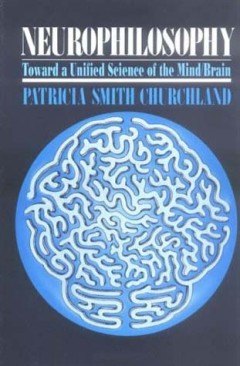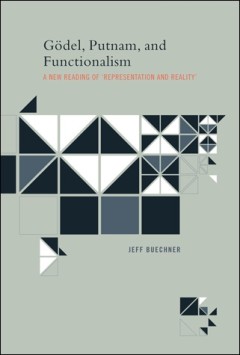Filter by

Natural minds
"A Bradford book."In Natural Minds Thomas Polger advocates, and defends, the philosophical theory that mind equals brain--that sensations are brain processes--and in doing so brings the mind-brain identity theory back into the philosophical debate about consciousness. The version of identity theory that Polger advocates holds that conscious processes, events, states, or properties are type- ide…
- Edition
- -
- ISBN/ISSN
- 9780262281737
- Collation
- 1 online resource (xxvii, 294 pages) :illustrations
- Series Title
- -
- Call Number
- -

Neurophilosophy :toward a unified science of the mind-brain.
Five chapters in the book's first part, "Some Elementary Neuroscience," sketch the history of the science of nervous systems and provide a general introduction to neurophysiology, neuroanatomy, and neuropsychology. In the second part, "Recent Developments in the Philosophy of Science," chapters place the mind-body problem within the wider context of the philosophy of science. Drawing on recent …
- Edition
- -
- ISBN/ISSN
- 9780262315944
- Collation
- 1 online resource.
- Series Title
- -
- Call Number
- -

G?odel, Putnam, and functionalism :a new reading of Representation and reality
"A Bradford book."The first systematic examination of Hilary Putnam's arguments against computational functionalism challenges each of Putnam's main arguments.OCLC-licensed vendor bibliographic record.
- Edition
- -
- ISBN/ISSN
- 9780262269513
- Collation
- 1 online resource (x, 344 pages)
- Series Title
- -
- Call Number
- -

Neither brain nor ghost :a nondualist alternative to the mind-brain identity …
In this highly original work, Teed Rockwell rejects both dualism and the mind-brain identity theory. He proposes instead that mental phenomena emerge not merely from brain activity but from an interacting nexus of brain, body, and world. The mind can be seen not as an organ within the body, but as a "behavioral field" that fluctuates within this brain-body-world nexus. If we reject the dominant…
- Edition
- -
- ISBN/ISSN
- 0262681676
- Collation
- 1 online resource (xxii, 231 pages) :illustrations
- Series Title
- -
- Call Number
- -

Representation and reality
"A Bradford book."Hilary Putnam, who may have been the first philosopher to advance the notion that the computer is an apt model for the mind, takes a radically new view of his own theory of functionalism in this book. Putnam argues that in fact the computational analogy cannot answer the important questions about the nature of such mental states as belief, reasoning, rationality, and knowledge…
- Edition
- -
- ISBN/ISSN
- 0585021228
- Collation
- 1 online resource (xv, 136 pages).
- Series Title
- -
- Call Number
- -

The rediscovery of the mind
"Bradford Books."OCLC-licensed vendor bibliographic record.
- Edition
- -
- ISBN/ISSN
- 9780262315982
- Collation
- 1 online resource (xv, 270 pages).
- Series Title
- -
- Call Number
- -
 Computer Science, Information & General Works
Computer Science, Information & General Works  Philosophy & Psychology
Philosophy & Psychology  Religion
Religion  Social Sciences
Social Sciences  Language
Language  Pure Science
Pure Science  Applied Sciences
Applied Sciences  Art & Recreation
Art & Recreation  Literature
Literature  History & Geography
History & Geography